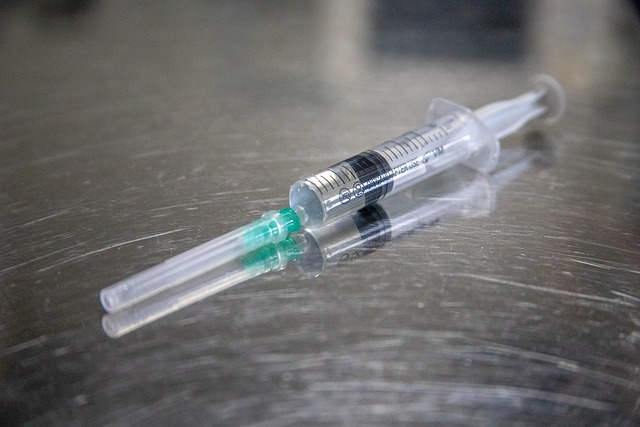
Medical Students with Needles in Their Toes Who Don’t Have Diabetes
I sat on the hospital bed with my toes exposed and pointed to the ceiling. The time had come. After three years of blackened, thickened, twisted big toenails that had begun to get regular infections, they had to come off. Amputation is a true threat to those of us with Type 1 diabetes – often from unhealed wounds or ulcers of the feet and I know this all too well after my uncle Ivan had to choose to have his leg amputated after years of Type 1 diabetes and a foot sore gone wrong. My toenail infections could escalate quickly and cause exceptional harm to my feet, thus the nail extrication. Sigh. Thanks Diabetes.
Enter Mr. Price and Nurse Jane. They started opening sealed packages of sterile tools and bandages as we bantered about their day, my day and the turn my day was about to take thanks to the pliers laying on the tray-table.
Nurse Jane held a spray bottle in her hand and just before she pulled the spray-trigger she said, “This is going to be cold.”
“As if cold is the worst thing I’m about to feel, ha! Don’t worry about it.”
Next, Mr. Price hovered over my feet with a large syringe and said, “Ready? Do you care which one I freeze first?”
I’ve been injecting myself almost my whole life via insulin syringes to manage my Diabetes, but his needles would not be as kind as the tiny syringes I was used to.
“Just get ‘er done, Doc. Do them both quickly and get ‘er done.”
“Okay. Here comes a scratch.”
Over 200,000 – That’s how many nerve endings there are in each foot, according to A Complete Guide To The Nerves In Your Feet (footvitals.com (and every other relevant resource for that matter.)
I lost it. No, I didn’t scream or cry or throw my travel coffee mug at Mr. Price. (It did cross my mind but it wasn’t empty and I didn’t want to waste.)
I leaned into a diatribe.
“Scratch? You folks always say, ‘here’s a little scratch’ no matter what the gauge of the needle! A scratch is what you get from your puppy when they are smothering you with love and their nails need clipping. A scratch has nothing to do with what you have stuck in my toe right now.”
He pulled it out and stabbed me again. Same toe.
Nurse Jane nodded and chuckled and agreed, maybe ‘scratch’ wasn’t the right word.
Mr. price pulled it out and stabbed me again. Same toe.
“It’s outright lies! How can you ethically get away with it! I thought you took an oath after medical school! I’ll give you a scratch.”
Mr. Price snickered and pulled the weapon out.
“K. Ready for the other toe?”
“Nurse Jane, quick! Give me another topic to talk through this!
“Here comes another scratch.”
“Scratch! DID YOU NOT HEAR ME SAY THAT WORD IS RIDICULOUS?! Why don’t you try, ‘six hornets straight from the hive after you killed their queen with a hammer!”
“Hmm, maybe ‘sting’ is a better word,” said nurse Jane.
“Well, it’s probably closer than scratch. My puppy is nowhere to be found in this room.”
“K, another scratch.”
“Oh, come on. “I mean, of course you aren’t going to describe the worst case scenario – the truth. The patient would go running. But scratch? Keep sayin’ it Doc. You’re just mocking me now.”
He finished the third ‘scratch’ and I took a sip of my coffee. So thirsty.
“You know Susanne. We practiced these injections on each other in med school.”
Okay. So maybe I had been a little over-the-top.
Still, I almost jumped off the table. “YES! I mean, wait, I wouldn’t wish this on you cuz you’re great, but that is so awesome, so important! When a doctor knows what the patient is feeling it gives room for a compassion that can otherwise be lacking.”
Mr. Price agreed.
Sure, I suppose a nephrologist can’t have a kidney removed or an ophthalmologist a retina hoovered just for relatability. That’d be bad.
But medical students getting hand I.V.’s and eye injections and colonoscopies and defecating proctograms? Imagine the empathy gained to be offered to a struggling patient. (And yes, I’m no stranger to all of these tests. I dare you to look up ‘defecating proctogram’. )
Mr. Price’s medical school got it right. I hope others are doing the same? But are they?
I’ve had the privilege of talking to medical students about Type 1 diabetes and I won’t lie, I was shocked at how little they knew about the patient’s perspective. After questions like ‘How many times do you test your blood glucose in a day’ and, do the finger pokes get easier?’ one student asked what the hardest part of having diabetes was. A collective gasp of shock filled the room when my answer was, “Of course diabetes burnout is real, and fear of deathly diabetes complications is always present, but one of the hardest things for me is when my endocrinologist shames me by saying, ‘Susanne, you’re not trying hard enough’ or throws words of judgment like, ‘Ooooo, these numbers are not good.’ I even had a childhood endocrinologists say, ‘If you don’t stop cheating on your diet and get better control, you’ll be dead by the age of 25.’” Wow. That statement still worms its way into my spirit instilling fear, and I’m in my forties!
I went on to say, “When you become doctors, never underestimate the impact of your words to a patient. When ill, we are delicate and need to feel heard and understood. Encourage rather than judge, please.”
I know a few needles to the toe as a medical student is not the same as understanding living with Type 1 diabetes or having a kidney removed, but it’s something. It’s a small way to gain a large understanding for the patient getting ‘scratched.’
Shared experience is a great connector.
Connectors break down barriers and build stronger relationships.
Sorry I accused you of mocking me, Mr. Price.
Although I think you were, and I love you for it.

